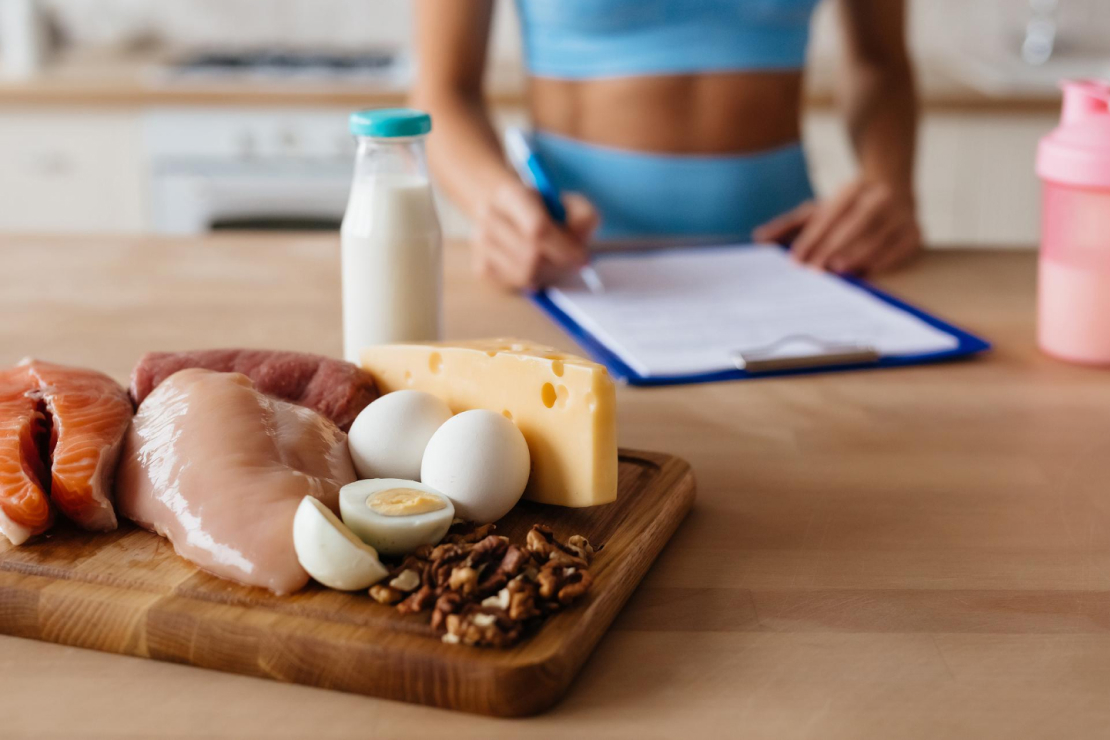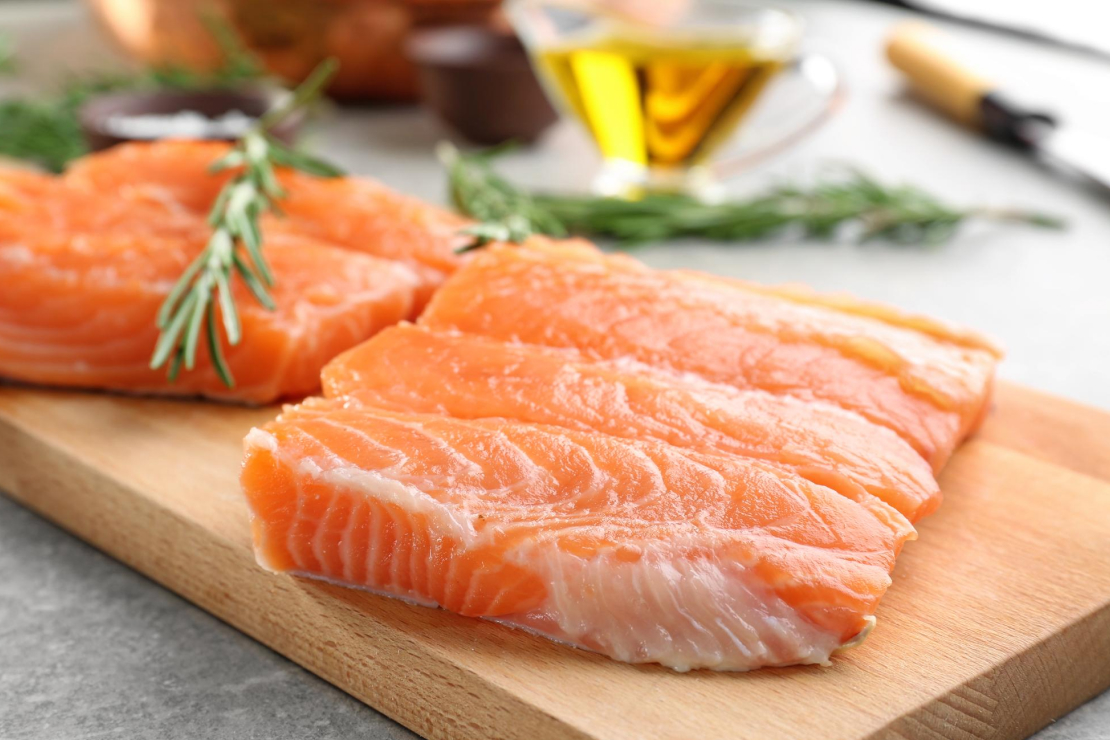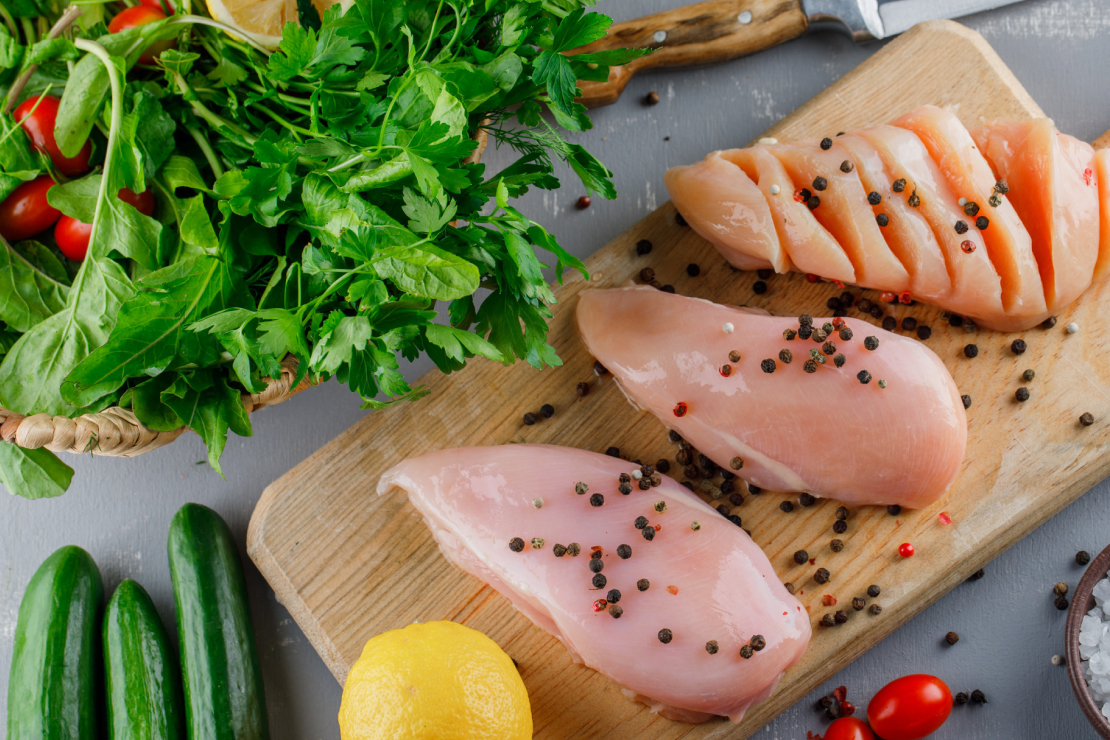What is Lean Protein, and Why is it Important?
Discover the essential role of lean protein in your diet, from muscle building to weight management. Learn the best sources and how to incorporate them into your meals.

Table of Content
Understanding Lean Protein: The Foundation of a Healthy Diet
Lean protein has become a buzzword in the health and fitness community, but its importance extends far beyond building muscle. As a crucial macronutrient, lean protein plays a vital role in weight management, metabolism, and overall health. Let's dive deep into what makes protein "lean" and why it should be a cornerstone of your daily nutrition.
What Makes Protein "Lean"?
Lean protein refers to protein sources that are relatively low in fat and calories while providing a high protein content per serving. Here's a comprehensive comparison of different protein sources and their lean status:
| Protein Source | Protein per 100g | Fat Content | Calories | Lean Status |
|---|---|---|---|---|
| Chicken Breast | 31g | 3.6g | 165 | Very Lean
Less than 4g fat per 100g |
| Turkey Breast | 29g | 1g | 135 | Very Lean
Lowest fat content |
| White Fish | 24g | 1.3g | 105 | Very Lean
Excellent protein-to-fat ratio |
| Egg Whites | 11g | 0.2g | 52 | Very Lean
Almost fat-free |
| Greek Yogurt (0%) | 10g | 0g | 59 | Very Lean
Fat-free option |
Benefits of Lean Protein
1. Weight Management and Fat Loss
Lean protein is a powerful ally in weight management and fat loss through multiple mechanisms:
- Enhanced Satiety
Protein reduces ghrelin (hunger hormone) levels by up to 50% for 4 hours after consumption
- Higher Thermic Effect
20-30% of protein calories are burned during digestion vs. 5-10% for carbs
- Muscle Preservation
Maintains lean mass during caloric deficit, preventing metabolic slowdown
- Blood Sugar Regulation
Reduces post-meal glucose spikes by 30% when consumed with carbohydrates
- Reduced Late-Night Cravings
25-30g protein at dinner reduces nighttime snacking by 50%
2. Muscle Building and Recovery
Lean protein is essential for muscle development and maintenance through several pathways:
- Muscle Protein Synthesis
Optimal activation requires 2.0-2.4g leucine per meal from lean protein
- Recovery Enhancement
Reduces exercise-induced muscle damage by up to 40% when consumed within 2 hours
- Strength Development
Supports 20-30% greater strength gains when combined with resistance training
- Amino Acid Profile
Complete proteins provide all 9 essential amino acids for tissue repair
- Performance Optimization
Pre-workout protein improves power output by 10-15% during training
3. Metabolic Health and Body Composition
Impact on overall metabolic function and body composition:
- Metabolic Rate Enhancement
Increases resting metabolism by 80-100 calories per day through muscle preservation
- Hormone Optimization
Supports healthy testosterone and growth hormone production
- Glucose Management
Improves insulin sensitivity by 25% when replacing refined carbs
- Body Composition
Higher protein diets (1.6g/kg+) lead to 27% better fat loss retention
- Cellular Health
Provides essential amino acids for DNA repair and immune function
4. Bone and Joint Health
Lean protein plays a crucial role in maintaining skeletal health:
- Bone Density Support
Higher protein intake associated with 6% higher bone mass
- Collagen Production
Essential amino acids required for joint cartilage repair
- Calcium Absorption
Protein optimizes calcium utilization for bone strength
- Injury Prevention
Adequate protein reduces fracture risk by 69% in adults
- Recovery Support
Accelerates soft tissue healing after injury or surgery
5. Cognitive Function and Mood
Recent research highlights protein's impact on brain health:
- Neurotransmitter Production
Essential for serotonin and dopamine synthesis
- Mental Clarity
Stable blood sugar improves focus and concentration
- Stress Response
Amino acids support cortisol regulation and stress adaptation
- Memory Function
Protein-rich breakfast improves working memory by 20%
- Mood Stability
Regular protein intake reduces anxiety and mood fluctuations
Optimal Protein Timing for Maximum Benefits
- Morning (20-30g)
Stops muscle breakdown and stabilizes blood sugar
- Pre-Workout (20g)
Improves performance and reduces muscle damage
- Post-Workout (30-40g)
Maximizes recovery and muscle protein synthesis
- Before Bed (30g)
Supports overnight recovery and morning metabolism
Best Sources of Lean Protein
Animal Sources
- Chicken breast
31g protein per 100g
- Turkey breast
29g protein per 100g
- Fish (cod, tilapia, tuna)
20-25g protein per 100g
- Egg whites
11g protein per 100g
Plant-Based Sources
- Legumes
15-20g protein per 100g (cooked)
- Tofu
8g protein per 100g
- Tempeh
19g protein per 100g
- Seitan
75g protein per 100g
How Much Lean Protein Do You Need?
Daily protein requirements vary based on several factors:
| Activity Level | Protein Need (g/kg) | Example (70kg person) | Best Timing |
|---|---|---|---|
| Sedentary | 0.8g/kg | 56g/day | Spread throughout day
3-4 meals |
| Moderately Active | 1.2-1.4g/kg | 84-98g/day | Include post-workout
4-5 meals |
| Athletic | 1.4-2.0g/kg | 98-140g/day | Pre and post-workout
5-6 meals |
| Building Muscle | 1.6-2.2g/kg | 112-154g/day | Every 3-4 hours
6+ meals |
Tips for Incorporating Lean Protein
Meal Planning Strategies
- Prep in advance
Cook multiple portions at once
- Portion control
Use a food scale for accuracy
- Variety is key
Rotate different protein sources
- Smart combinations
Pair with complex carbs and healthy fats
Common Myths About Lean Protein
Can you eat too much protein?
Does protein timing matter?
Are plant proteins inferior to animal proteins?
Lean Protein for Special Diets
Different dietary preferences require different approaches to lean protein:
| Diet Type | Best Protein Sources | Special Considerations | Daily Target |
|---|---|---|---|
| Vegetarian | Eggs, dairy, legumes
Complete protein combinations | Combine complementary proteins | Same as standard
Focus on variety |
| Vegan | Legumes, tofu, tempeh
Plant-based complete proteins | B12 supplementation needed | Slightly higher
+10% recommended |
| Keto | Fatty fish, eggs
Moderate protein sources | Balance with fat intake | Moderate
0.8-1.2g/kg |
"Lean protein is not just about building muscle; it's a fundamental component of overall health, supporting everything from weight management to metabolic function. The key is finding sustainable ways to incorporate adequate amounts into your daily diet."
The Bottom Line
Understanding and incorporating lean protein into your diet is crucial for achieving your health and fitness goals. Whether you're looking to build muscle, lose weight, or maintain overall health, lean protein should be a cornerstone of your nutrition strategy. Focus on finding sustainable sources that align with your dietary preferences and lifestyle, and remember that consistency is key.
Start by identifying your protein needs based on your activity level and goals, then gradually incorporate more lean protein sources into your meals. Track your progress and adjust as needed, and don't forget to combine your protein intake with a balanced diet and regular exercise for optimal results.
Start Your Health Journey Today
Download Macro Tracking AI and take control of your nutrition with the power of artificial intelligence.
Download on App Store

